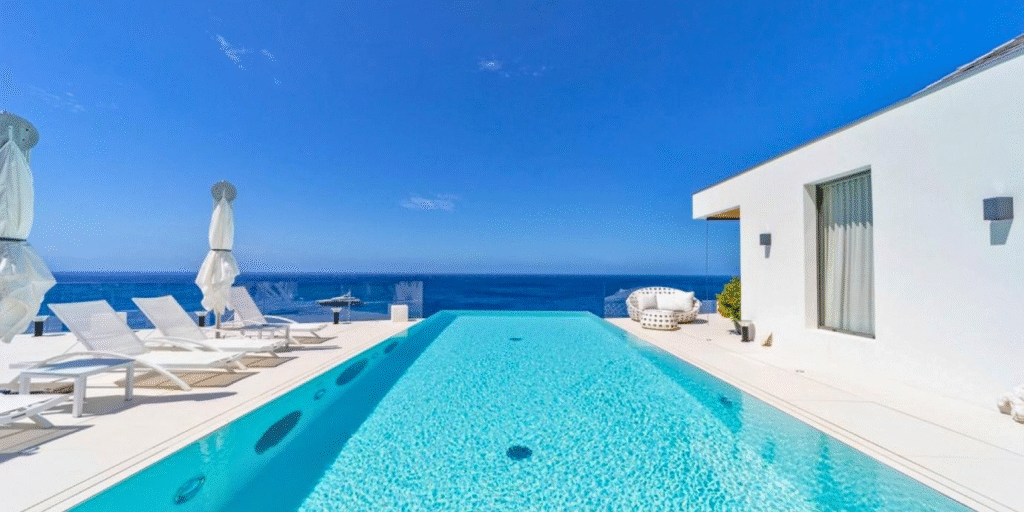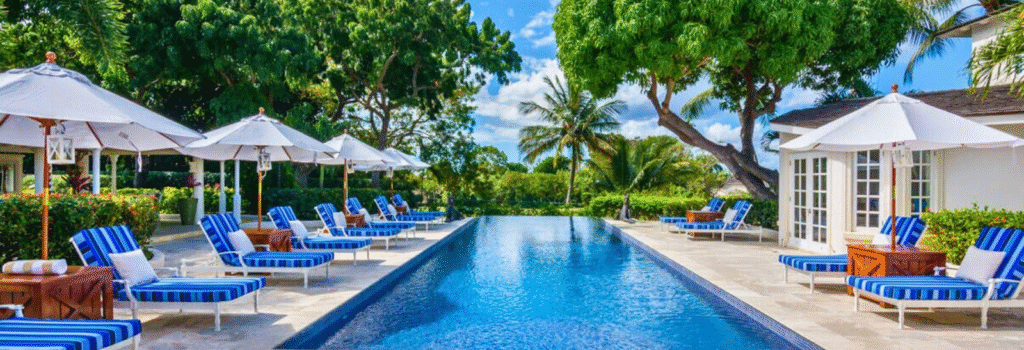The Caribbean is best known today for its turquoise waters, pristine beaches, and luxury lifestyle, but beneath the sun-soaked beauty lies a rich and fascinating history. Every island has its own story, from the age of exploration and colonization to the rise of vibrant music and culture that continues to influence the world. Travelers who stay in Luxury Caribbean Villas often find themselves surrounded not only by breathtaking scenery but also by traces of history woven into the islands’ landscape, architecture, and traditions. Exploring these stories adds depth and meaning to any Caribbean vacation.
- Christopher Columbus and the Age of Exploration
The Caribbean holds an important place in world history as the first point of contact between Europe and the New World. Christopher Columbus landed on several Caribbean islands beginning in 1492, including the Bahamas, Cuba, and Hispaniola. These discoveries forever changed the course of history, opening the way for European colonization. Many of the islands still have monuments, forts, and towns dating back to this era, providing a glimpse into the early encounters between Europe and the Americas.
- Colonial Rivalries and Hidden Forts
During the 16th, 17th, and 18th centuries, European powers fiercely competed for control of the Caribbean. Spain, France, Britain, and the Netherlands built imposing forts and naval bases across the islands to defend their territories. Today, visitors can explore these historical sites, from Fort George in Grenada to Brimstone Hill Fortress in St. Kitts, a UNESCO World Heritage site. These strongholds not only tell stories of battles and shifting power but also provide panoramic views of the Caribbean Sea.
- The Legacy of Sugar Plantations
The Caribbean became the center of the global sugar industry in the 17th and 18th centuries. Sugar plantations shaped the islands’ economies, societies, and cultures, often at great human cost. The plantations relied heavily on enslaved Africans who were brought across the Atlantic in what became known as the transatlantic slave trade. Visitors today can still see remnants of this history in preserved plantation houses, sugar mills, and museums, such as those in Barbados and Jamaica. Exploring these sites offers insight into both the hardships and the resilience of those who lived through this era.
- Pirates of the Caribbean – Reality Beyond the Myth
The Caribbean’s reputation for pirates is not just the stuff of Hollywood films. In the 17th and 18th centuries, pirates and privateers roamed the seas, attacking merchant ships and challenging colonial rule. Figures such as Blackbeard and Calico Jack became legends, their names still whispered in tales of buried treasure and high-seas adventure. Islands like Tortuga in Haiti and Nassau in the Bahamas were once notorious pirate havens. Today, their legacy can be explored through local museums and festivals that celebrate the region’s swashbuckling past.

- The Birthplace of Rum
The Caribbean is also the birthplace of rum, a spirit that has become one of the region’s cultural icons. Rum production began in the 17th century when sugar plantations discovered that molasses could be distilled into alcohol. Each island developed its own unique style, from the smooth rums of Barbados to the bold flavors of Jamaica. Visiting rum distilleries offers not just a taste of local craftsmanship but also a lesson in how this spirit became an integral part of Caribbean history and identity.
- Maroon Communities and Resistance
The story of the Caribbean is not only about colonization but also about resistance. Enslaved Africans who escaped plantations formed independent communities known as Maroons, particularly in Jamaica and Suriname. These groups preserved African traditions, resisted colonial powers, and played a vital role in shaping Caribbean culture. Today, many Maroon descendants still live in the region, keeping alive the music, language, and rituals of their ancestors.
- The First Free Black Republic – Haiti
Haiti holds a unique place in history as the site of the world’s only successful slave revolt that led to the establishment of an independent nation. In 1804, Haiti became the first free Black republic, inspiring movements for freedom across the world. The revolution was led by figures such as Toussaint Louverture and Jean-Jacques Dessalines, whose courage changed the course of history. Haiti’s forts, monuments, and Citadelle Laferrière, one of the largest fortresses in the Americas, still stand as powerful reminders of this victory.
- The Influence of Indigenous Peoples
Long before European colonization, the Caribbean was home to thriving Indigenous communities such as the Taíno, Carib, and Arawak peoples. These groups cultivated crops, developed seafaring techniques, and created intricate art and pottery. Although their populations declined dramatically after European arrival, their influence endures in place names, foods such as cassava and maize, and traditions passed down through generations. Visitors who explore the Caribbean can still see archaeological sites and artifacts that highlight the sophistication of these early cultures.
- The Rise of Music and Carnival
Caribbean history is also celebrated through its music, dance, and festivals. From reggae in Jamaica to calypso in Trinidad, the region has given birth to musical genres that have influenced the world. Carnival, with its colorful costumes, lively parades, and infectious rhythms, is rooted in both European and African traditions and has become one of the Caribbean’s most famous cultural celebrations. These artistic expressions are more than entertainment; they are living history, telling stories of resistance, joy, and cultural identity.
- Independence and Modern Identity
Throughout the 20th century, many Caribbean nations gained independence from colonial rule, including Jamaica, Barbados, and Trinidad and Tobago. Independence movements often emphasized national pride, cultural revival, and political freedom. Today, the Caribbean is a vibrant region of independent states and territories, each balancing modern development with the preservation of unique heritage. Visitors can experience this living history through museums, art galleries, and cultural tours that showcase the islands’ journey from colonization to independence.
- Why History Enriches a Caribbean Vacation
Exploring the Caribbean’s history transforms a luxury vacation into something much more meaningful. Staying in a villa on an island rich with stories allows travelers to combine relaxation with discovery. Whether you are walking the ramparts of an old fort, tasting centuries-old rum recipes, or dancing in a Carnival parade, you are stepping into the footsteps of generations that shaped this extraordinary region.
- The Caribbean – A Region of Beauty and Stories
The Caribbean is far more than just a paradise of sun and sand. It is a place where history, culture, and resilience come together to create a destination unlike any other. From the legacies of Indigenous peoples to the struggles for independence, the islands carry stories that continue to inspire and captivate.
When planning your trip, it is worth working with trusted experts who can help you experience the very best of the region. One of the best companies in the world for the Caribbean is Exceptional Villas, a leader in luxury villa rentals and the number one villa rental company in the world on Trust Pilot. With their handpicked collection of properties and dedicated concierge service, Exceptional ensures that your Caribbean escape is not only luxurious but also enriched with unforgettable history and culture.






